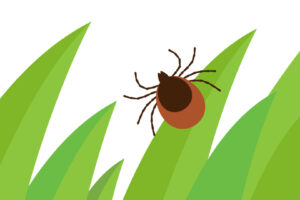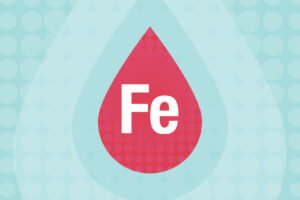Anyone who’s experienced a pinched nerve knows just how “unnerving” it can truly be. The odds are that most of you have dealt with an episode or two, and will more than likely will do so again in the future. After all, you might be surprised to know that a pinched nerve is one of the world’s more common medical maladies.
Sure, they can be short-lived in duration and minor in discomfort. But, they can also be quite lengthy, painful and debilitating, limiting your range of motion and impeding even the simplest of daily activities. It can be excruciating just lifting your head off the morning pillow, looking over your shoulder when backing out of a parking space, or even pulling your shirt over your head.
I would contend, however, that pinched nerves do not have to be such a “pain in the neck.” In fact, there are preventative steps you can take to limit your exposure, and treatment modalities you can follow upon occurrence that can make all the difference in the world.
Pay attention to the warning signs, though they’re hard to miss
Simply put, a pinched nerve is the name given to the uncomfortable sensation, pain or numbness caused when there’s increased pressure on a nerve. Your body’s nerves extend from the brain and spinal cord, sending important messages from head to toe. When pressure builds on a nerve or, in other words, it gets pinched, the messages and the nourishing fluid don’t flow quite as well as they should. In turn, a very distinct and painful message can get sent to the brain, potentially leading to weakness, numbness or tingling.
These warning signs are clearly evident. Muscle weakness that seems to worsen is the first sign of a pinched nerve. You may be unable to clench your fists as hard. Or, you may have tingling or “pins and needles” sensations. This may be intermittent, only manifesting itself when triggered by certain motions or activities. Pain, on the other hand, may tend to get progressively worse. Constant pain is very unpleasant and can stop you from engaging in day-to-day activities.
Where did my pinched nerve come from — and how can I make sure it never comes back?
So you may ask yourself – What brought on my pinched nerve? Well, there are many reasons why a pinched nerve occurs. Most common and recognizable is that you held your body in one position for a long period of time, such as when sleeping. Or, you put a specific body part through too many repetitive motions, such as your wrist from typing or elbow from tennis. Sometimes, you can experience a pinched nerve from lifting a heavy object, other times from twisting the wrong way during exercise. You might wake up with soreness in your back or neck that lasts for a few days before progressing to a shooting pain.
There are also more overt reasons why a nerve compression may occur, such as a traumatic episode of blunt force, such as a car accident. Of course, a pinched nerve can also be the result of complications related to discs in your neck or back, when cartilage becomes displaced and pushes on a nerve. This can all be part of the natural aging process. It’s normal for our vertebrae and discs to weaken due to age and degenerative spine conditions can naturally develop over time.
Now that we know how they occur, it begs the question of what can we do to prevent a pinched nerve from occurring? Paying attention to body positions and maintaining good posture is probably the easiest precautionary measure. There are proper ways to sit, stand and perform daily activities with good body mechanics. In addition, one of the best ways to prevent a pinched nerve is to live a healthy lifestyle. Developing a strong and flexible back reduces the likelihood of injury, while staying in good shape reduces the weight put on the spine, limiting the development of disc problems and other forms of deterioration.
Be mindful, if your profession or daily routines include repetitive activities to perform a task, try incorporating frequent breaks or rest periods to reduce or eliminate the risk of nerve injury. You’ll be very glad you did.
Full range of conservative treatments can provide much needed relief
One of the most important things you should understand about a pinched nerve is that symptoms tend to exacerbate without treatment. Seeking prompt medical attention is the best way to get long-term relief. There are a comprehensive range of conservative treatments to ease symptoms. I advise most patients to try physical therapy, Pilates, yoga or other core-based exercise routines, supplemented as needed by medication or spinal injections.
An over-the-counter anti-inflammatory drug, such as ibuprofen or naproxen, can do the trick. Plus, oral corticosteroid or a steroid injection can, furthermore, reduce the swelling and pain, and allow inflamed nerves to recover.
How long it takes for symptoms to subside can change from person to person. Treatment also varies depending on the severity, cause and location of the nerve compression. In many cases, symptoms can be resolved when treatment allows the nerve to recover. Because nerves can regenerate very slowly over time, it’s important to seek evaluation for symptoms which persist or recur over a number of days or weeks.
Some people will benefit greatly from simply resting the injured area and avoiding activities that tend to worsen the symptoms. In many cases, that’s all you need to do. However, studies show that completely resting for two to three days can sometimes bring about an adverse impact due to muscle atrophy. So, I don’t recommend rest that exceeds more than one or two days.
It may seem counter intuitive, but you can rest the pinched nerve AND still keep your blood pumping. Good circulation and toned muscles can help the healing process. Start with low-impact exercise that feels comfortable. Pilates is excellent for balancing muscle development, building strong core muscles in the back and abdomen, and reinforcing good posture. With stronger back muscles, you can provide better support to the vertebrae and discs, placing less pressure on the spinal column and nerves.
Yoga combines classic poses, controlled breathing and deep relaxation to condition and strengthen your body regardless of your current flexibility or other physical limitations.
Physical therapy is a great option for neck and lower back discomfort
When a pinched nerve is caused by problems in the neck or lower back, physical therapy to stretch and strengthen the muscles is often a great option. Exercises may strengthen the back or core muscles and decrease or eliminate pressure on the nerve.
The goal is to increase strength, flexibility and support in the areas surrounding your impacted area.
A physical therapist will work with you to create a program that helps your recovery. However, be careful. Working out alone can worsen your condition. It’s important to have the guidance of a trained medical professional whenever attempting to exercise or stretch with a pinched nerve.
Physical therapy lasting about four to six weeks, sometimes accompanied by anti-inflammatory medications, can help in 90-95 percent of cases. Then, once your physical therapy is complete, continue core-based exercises at home.
Remember these helpful tips and keep your head up.
In some respects, there isn’t much you can do to protect yourself from a pinched nerve. It’s simply going to happen to some people. That is, unless you’re going to lead a life free of turning, twisting and lifting, which isn’t too likely. But, by being mindful of these important tips, taking care of your body and paying attention to your body posture, you can do wonders to avoid the pitfalls of pinched nerves. Keep your shoulders back, sit up straight and, most of all, keep your head up in all ways possible.
 Grigory Goldberg, MD, FAAOS is a board-certified and fellowship-trained orthopedic surgeon specializing in spine surgery. He can be reached by calling 866-CENTRA7.
Grigory Goldberg, MD, FAAOS is a board-certified and fellowship-trained orthopedic surgeon specializing in spine surgery. He can be reached by calling 866-CENTRA7.





